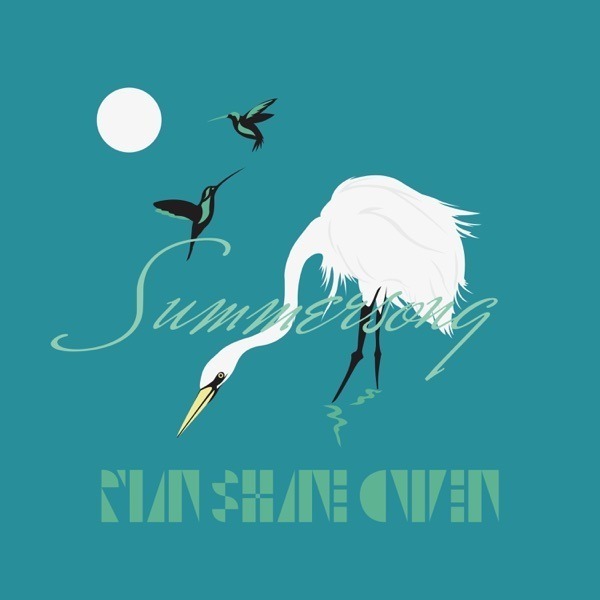Ryan Shane Owen Invites You On A Vibrant Mediterranean Journey With Electro-Classical-Folk ‘Summersong’ Album
Following his acclaimed 2023 release Wintersong, independent Canadian musician Ryan Shane Owen has unveiled Summersong. This new album is a rich tapestry of musical genres, from classical opera to traditional folk, evoking the sun-soaked ambiance of Mediterranean countries. Produced, arranged, and performed entirely by Ryan himself, the album showcases his versatile vocals in 10 languages.
Ryan Shane Owen has been immersed in music since childhood, mastering piano, guitar, and vocals over his 25-year career. After exploring dance-pop with albums like Rhapsody for the Disco, Symphony for the Stereo, and Concerto for the Underground between 2021 and 2022, he returned to his classical and folk roots. However, he reimagined these timeless pieces with a contemporary twist, infusing them with electronic elements for a fresh, modern sound.
Summersong kicks off with “La Paloma,” a Spanish classic dating back to the 1800s, celebrated for its numerous renditions throughout history. The album continues with “Santa Lucia,” a beloved Neapolitan song praising the beauty of Naples, and “O Sole Mio,” another iconic Neapolitan piece famously adapted into Elvis Presley’s hit It’s “Now Or Never.”
Ryan’s innovative approach extends to “La Golondrina,” commemorating Mexican exiles with a disco-infused reinterpretation, and “Habanera” from Bizet’s ‘Carmen’, traditionally sung by women but transformed by Ryan’s unique vocal style and modern beats.
In “Duo Des Fleurs’ from Delibes” opera ‘Lakmé’, Ryan brings a dreamy, surreal touch reminiscent of artists like David Lynch and Lana Del Rey. He also tackles Handel’s operatic gem “Ombra Mai Fù,” blending its majestic melody with contemporary flair.
The album features the Hebrew song “Hineh Ma Tov,” offering a reggae-inspired twist on its melancholic lyrics, and explores Greek influences with “To Gelakaki” and the lively folk dance ‘Palamakia’. Ryan’s rendition of ‘Misirlou’, known for Dick Dale’s surf-guitar version and featured in ‘Pulp Fiction’, showcases his eclectic musical palette.
From Verdi’s opera “La Traviata,” Ryan presents the joyous drinking song “Libiamo Ne’ Lieti Calici,” and “Va Pensiero (Sull’ali Dorate)” from “Nabucco,” a poignant chorus reflecting on the Babylonian exile.
The album concludes with “Ti Ipermaho,” an ancient Greek Orthodox hymn dating back to the 5th century AD, providing a majestic finale to Ryan Shane Owen’s musical odyssey on Summersong.
Experience the timeless melodies and innovative spirit of Summersong as Ryan Shane Owen invites you to immerse yourself in the cultural richness of the Mediterranean through his electrifying new album.
Hi Ryan, good to see you again! Care to introduce yourself to the readers who might not know you?
Thank you for having me again in Canadian Beats! I’ve been writing, producing, and performing music for a long time, and after being with 5 different bands/duos over the years, I finally “went solo” in 2018, and released my first album, Rhapsody for the Disco, in 2021. I followed that with 2 additional full-length albums, Symphony for the Stereo, and Concerto for the Underground.” This trilogy of albums is all original music, with many various influences, but all with a dance music theme. I do everything myself, from the production to the album artwork and music videos. Recently, I have gone in a new direction, reinterpreting classical, folk, and traditional music in a modern style by incorporating electronic production and beats, and with my own vocals. I have split this concept into 2 albums, ‘Wintersong’, which was released in 2023, and ‘Summersong’, which is now out for 2024.
What drew you specifically to Mediterranean music and themes for this album?
On my ‘Wintersong’ album, I explored pieces that have more of a northern and wintery feel, including songs in languages such as Welsh, and even Finnish and Norwegian. For ‘Summersong’, I wanted to reinterpret pieces with a warm, summery feel, so was naturally drawn to the music of the Mediterranean countries such as Spain, Italy, France, and Greece.
Your album features songs in 10 languages. How did you prepare for singing in languages other than your native tongue, and what significance do these languages hold for you?
Some of the languages I am more familiar with, such as French (having grown up in Canada, and lived in Montreal for a few years), and Italian, since the terminology for classical music is in Italian, as well as much of the lyrics. For the other languages that I was not familiar with, I developed a process of learning the meaning of the song, and breaking the lyrics down word by word to learn the pronunciation, and then just practice, practice, practice! I chose the songs more by the melodies and compositions that I was drawn to rather than by the language. But I did find it thrilling to challenge myself to learn songs in new and unfamiliar languages.
“Habanera” from Bizet’s ‘Carmen’ traditionally has a female lead. What inspired you to take on this piece, and how did you approach adapting it to your vocal style?
Part of my inspiration for choosing pieces was looking back at pieces that I had always enjoyed. Since the lyrics to Habanera are gender-neutral, (the English translation being “Love is a rebellious bird that nobody can tame, and you call him quite in vain if it suits him not to come.”) it was an easy choice for me to include. I wanted to imbue it with a bit of a mysterious, playful, sensual, and somewhat of a 60-style beat and feel.
How do you think your previous albums, like ‘Rhapsody for the Disco’ and ‘Wintersong’, have prepared you for this particular musical journey with “Summersong”?
I’m a classically trained musician, as well as having grown up with traditional and folk music, so in many ways, my new albums are a return to my roots. Having spent most of my adult musical career focusing more on electronic and dance music, my ‘Wintersong’ and ‘Summersong’ albums are really a melding of those 2 main aspects of my musical career: a fusion of ancient and modern.


